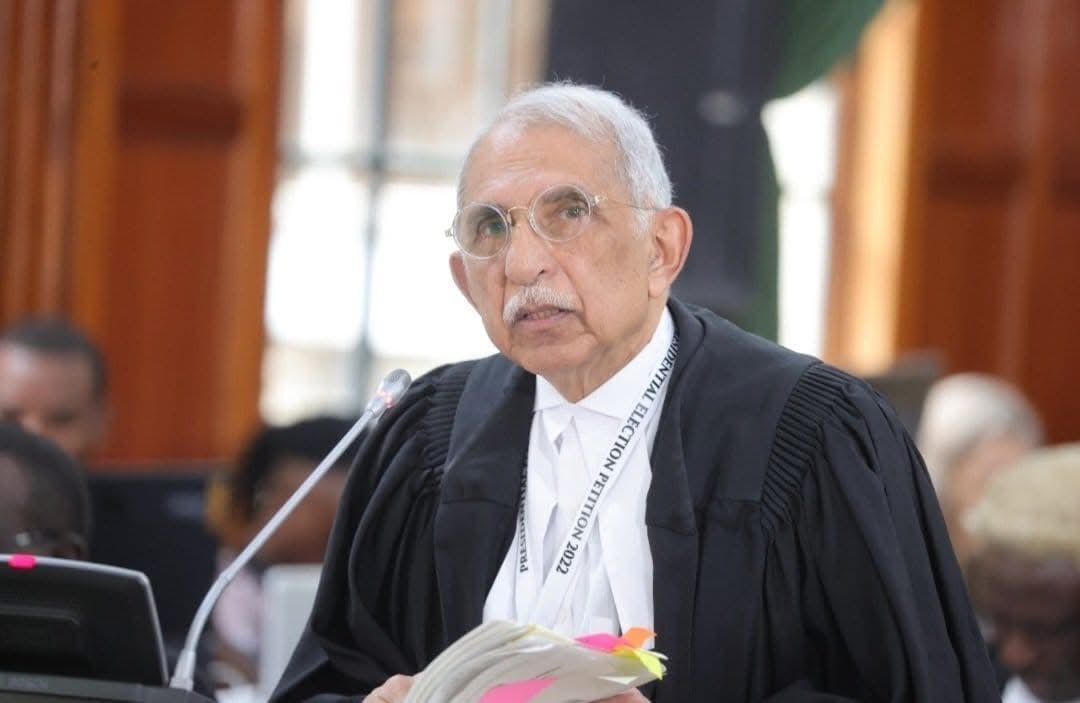Supreme Court grants widow 30 days to replace lawyer after court bars Ahmednasir Abdullahi

The Supreme Court has repeatedly maintained that it will not hear any cases involving Ahmednasir's law firm due to what it describes as his "continued unsubstantiated attacks to damage the reputation of the Supreme Court judges."
The Supreme Court has granted Fatma Faraj, a widow involved in an inheritance case, 30 days to find a new lawyer after her former advocate, Senior Counsel Ahmednasir Abdullahi, was barred from appearing before the court.
Chief Justice Martha Koome allowed Fatma's request for an adjournment to give her time to appoint another lawyer.
More To Read
- Fate of Senior Counsel Ahmednasir's ban hangs in the balance as Supreme Court, LSK talks stall
- Supreme Court under fire for upholding ban on lawyer Ahmednasir's firm
- PLO Lumumba to CJ Koome: Let Ahmednasir tender his defence at Supreme Court
- Judiciary warns LSK against Supreme Court protests over ongoing cases
- LSK condemns Supreme Court ban on Senior Counsel Ahmednasir
- Supreme Court upholds ban on Ahmednasir, declines to allow lawyer’s firm to represent client
The court had previously directed her to appear and state how she intended to proceed with the case following Ahmednasir's ban.
During a virtual session, Fatma informed the judges that her former advocate, Asli Osman, who is part of Ahmednasir's law firm, had notified her of the hearing date.
"I'm currently in the process of appointing another advocate. They have requested time to peruse the documents since they are bulky. I therefore request another hearing date. I will be filing a notice of change of advocate," she said.
After considering her request, Koome ruled, "I am inclined to grant her time within which to instruct another advocate." The court registrar will set a new hearing date.
The Supreme Court has repeatedly maintained that it will not hear any cases involving Ahmednasir's law firm due to what it describes as his "continued unsubstantiated attacks to damage the reputation of the Supreme Court judges."
The case concerns the estate of the late Mombasa tycoon Salim Hakeen, who passed away in Tanzania on February 23, 2015, without leaving a will. The dispute is centred on inheritance claims by his two alleged wives and their children.
Fatma asserts that under Islamic law, children born out of wedlock are not entitled to inherit from their deceased father's estate. She claims she was lawfully married to Hakeen on August 4, 2006, through Islamic rites, and they had four children together.
She also disputes claims by Faith Mwawasi, who insists she was married to Hakeen in December 2011 and had four children with him. Fatma argues that Mwawasi was not legally married to the tycoon and that her children cannot inherit from his estate.
Hakeen's estate includes 10 properties in Diani and Mtwapa, multiple vehicles, and several bank accounts. The dispute over inheritance rights is expected to continue once Fatma secures new legal representation.
Top Stories Today















































